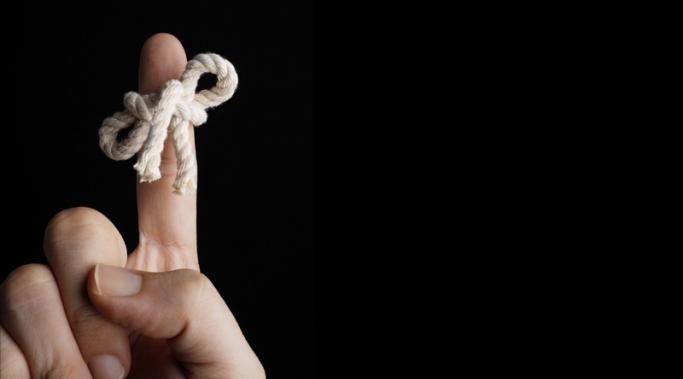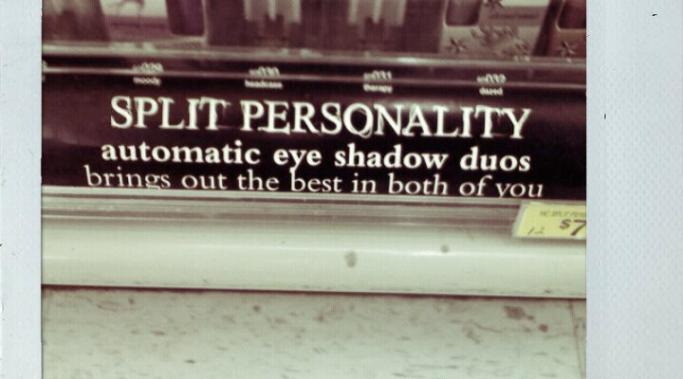Blogs
I take a lot of flak for what I have to say about mental illness. My positions are often blunt and sometimes unpopular. This is fine with me. I’m an opinionated girl. Not everyone enjoys that particular charm.
But one thing that gets said every once in a while is I’m, “playing the victim.” And not only that, but I’m encouraging others to be victims. Contagious victim-ness I suppose.
This, of course, is just a slur designed to make me and others feel bad about what we have to say. Well, I say this:
Admitting to having a mental illness doesn’t mean you’re “playing the victim.” Talking about mental illness isn’t “playing the victim” either.
Christopher Lanni has lived with his mother for the last 20 years. She has Alzheimer's disease and he is her caregiver. He wants people to know that in-home alzheimer caregiving is more than just a 24-hour-a-day job.
There are many, many people out there who either blog about issues of mental health or want to. Pretty much every mental illness is represented by people who are earnestly expressing their opinions and experiences.
But it’s a jungle out there, in the wooly wilds of the internet. So before you press “post,” please consider how much you want people to know about you.
The answer to "How Do I Stop Verbal Abuse?" is...drum roll, please...You can't! I wish that you could control how another person speaks and how they act. But you can't.
Raise your hand if you've ever asked your verbally abusive husband or boyfriend to speak to you in a nicer way. Raise your hand if you've tearfully begged your verbally abusive wife to be kinder to you. Wow. That's a lot of hands.
Did it work? No. At least not forever. The next time your abuser felt turmoil, s/he used their anger or sly verbal manipulations to bring you down again because you cannot stop verbal abuse.
Treating anxiety and my self-worth walk the same path, as much as I hate to admit it. When it comes to anxiety and panic - I don't want to see it. I don't want to feel it. I do want to fight it, and I do want to help, or at least find the kind of help that helps. But that is far, far easier said than done. When the way I'm treating anxiety fails, my self-worth falters, too.
A friend of mine recently went to a new psychiatrist, who took her off the one (ineffective) medication she was taking and prescribed several new ones. I asked her the other day how things were going.
“I can already see what the problem is going to be with this stuff,” she said. “Remembering to actually take them.”
Last Friday, my oldest son experienced verbal and physical abuse at the hands of his father (my soon to be ex husband). The father with whom the court sent him to live, the father he thought he could trust above everyone else - that father cornered him, jerked him, poked his forehead and chest, then put him to the ground and choked him.
It’s been a pretty quiet week on the homefront. No real “Boblems” to speak of. I know it won’t last, but I’m enjoying it to the fullest.
As always, we are left wondering—to what do we owe the pleasure? Is it the recent increase in Bob’s Focalin dose? The extended period of sunshine we’ve been blessed with? Bob’s bipolar disorder just cycling through to a “baseline” state?
Sometimes, those with bipolar disorder can wake up in the middle of the night, their heart is racing, sweating profusely, maybe feeling very dizzy and they're sure they are going to die. They might be shaking all over and don't understand why.
Yesterday, I came across a picture of a sign I’d taken several months ago while out shopping. The sign was under a display of eye shadow applicators that each contained two different colors and it read, “Split Personality – brings out the best in both of you.” Two shades of make-up, one for each personality. I’m sure someone fancied themselves terribly clever when they came up with that. But as much as I loathe the idea of suiting up with the PC police, I have to say that glamorizing Dissociative Identity Disorder to sell beauty products isn’t at all clever. In fact, I think that the pervasive use of mental illnesses as punch lines undermines efforts to promote understanding and support for people living with them.






